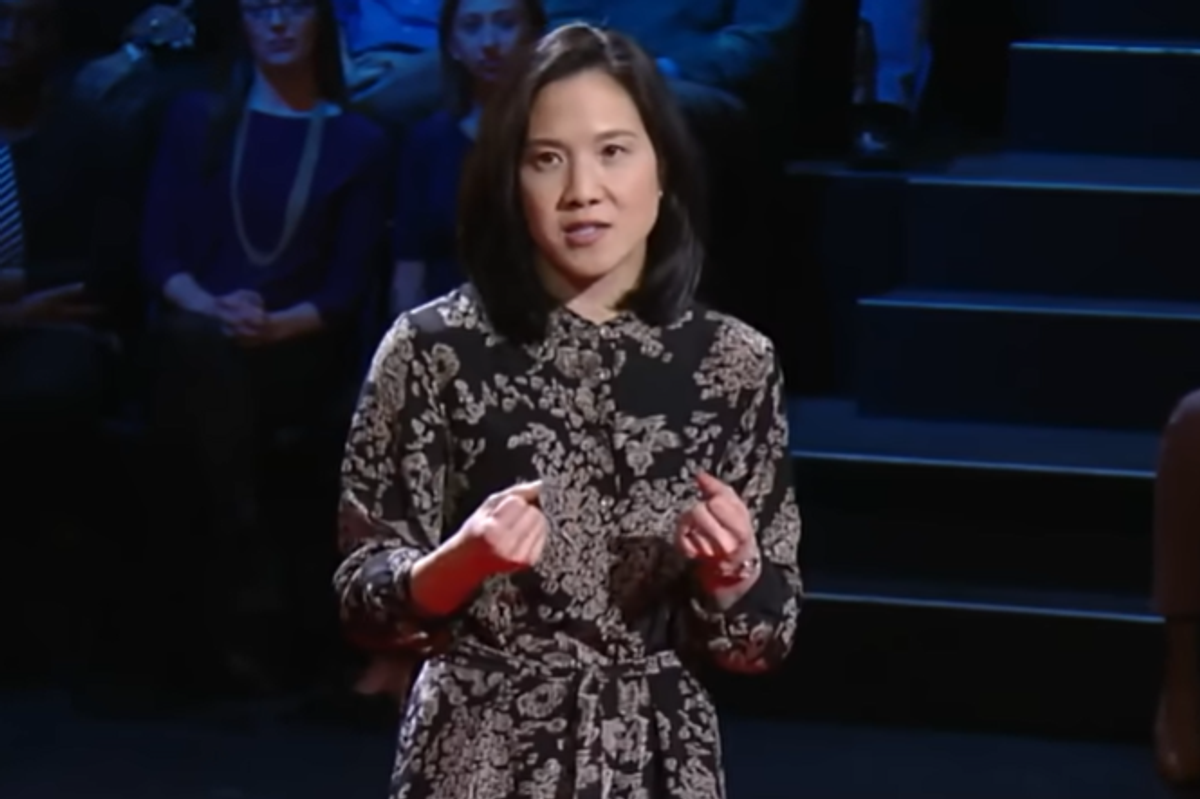Stop me if this sounds familiar.
Women are usually objectified and sexualized in major motion pictures.
People of color are usually the villains, terrorists, drug dealers, and criminals in major motion pictures.
Films usually consist of white men making all the decisions.
Historically, in movies it’s been the white guy calling the shots, faltering briefly, recognizing his wrongs, and eventually saving the day while teasing a sequel dependent on box office returns. Or sometimes, if there's a female lead, she’ll need strong males to help her see the way.
J.J. Abrams was happy to break this trend in last year's "Star Wars" installment, “The Force Awakens."
John Boyega, Daisy Ridley, and Oscar Isaac. Photo by Alberto E. Rodriguez/Getty Images.
In an interview at Comic-Con last year, when asked about the diversity in "The Force Awakens," Abrams said, "It’s important that fans see people who look like themselves in films."
Legendary franchises like “Ghostbusters” and “Star Wars” have taken huge steps forward not just in gender-neutral and colorblind casting, but in offering the spotlight to women and people of color.
That breaks barriers in Hollywood and proves it’s OK to not follow the homogenous checklist that has permeated Hollywood for decades.
“Rogue One” broke further from this tired formula and gave us new hope.
Slight spoiler alert. There's a moment in the film when the main cast of “good guys” is traveling, at hyperspace, in a beat-up ship that just barely made it out unscathed after witnessing a catastrophic event. As they barrel their way to an imperial base on Planet Eadu, the camera slowly pans across to show the newly formed team. The face of the resistance is not unlike the face of those struggling for equality today. The richness of the diversity is a palpable jolt of hope for all minorities everywhere.
Image courtesy of Walt Disney Pictures.
A main cast of people of color and a woman leading the way is a powerful scene to see.
Jyn Erso, played by Felicity Jones, leads the whole movement, with a team consisting of Cassian Andor (played by Mexican actor Diego Luna), Chirrut Imwe, the blind warrior (played by Chinese legend Donnie Yen), Bodhi Rook (played by Riz Ahmed, who is of Pakistani and Indian descent), and Baze Malbus (played by Chinese actor Jiang Wen) after leaving a meeting with another main character, Saw Gerrera (played by African-American Forest Whitaker).
There's no sexual tension to exploit. There are no stereotypes, drug deals, racist themes, religious tropes, or anything else that we’ve come to expect from Hollywood over the last 100 years since “Birth of a Nation” came out.
Forest Whitaker as Saw Gerrera. Image courtesy of Walt Disney Pictures.
But why is this important?
It’s important because like the "Ghostbusters" casting inspiring little girls, it does innumerable wonders for children of color. They see their races and ethnicities finally represented in Hollywood, and not in a negative light.
It's important because it shows we belong, even despite the adversity that women and minorities face.
Felicity Jones as Jyn Erso. Image courtesy of Walt Disney Pictures.
It’s important because it shows that a woman doesn’t need to be placed in a metal bikini to appeal to a target demographic, spawning thousands of horrid Halloween costumes.
The diverse cast in "Rogue One" shows that despite the challenges women and minorities face on the regular — and, as of Jan. 20, 2017, are likely to face even more often — that we can make strides and show the world, as we’ve tried to do since the beginning of recorded time, that we belong, and that we can also do what the typical white hero has done on the silver screen.
It shows that we’re on the right path but still have a ways to go.
Jiang Wen and Donnie Yen. Image courtesy of Walt Disney Pictures.
There's progress being made outside film franchises too. The British Academy of Film and Television Arts (the U.K.'s version of the Oscars) recently announced that as of 2019, films will not be eligible for any awards unless they're diverse and inclusive in front of and behind the camera. It may not be progress at the speed of light, but that clunky, beat-up ship will get there eventually.
"Rogue One" is billed as the prequel to "A New Hope," but for millions of minorities watching it on the big screen, this is their new hope — not just on the big screen, but in the real world we're living in.



 A Generation Jones teenager poses in her room.Image via Wikmedia Commons
A Generation Jones teenager poses in her room.Image via Wikmedia Commons
 Welcome to North Carolina State Line!
Welcome to North Carolina State Line! Smiling together: "The Lord Willing and the Creek Don’t Rise."
Smiling together: "The Lord Willing and the Creek Don’t Rise." Surprised cat faces an idiom shock!
Surprised cat faces an idiom shock! Feeling under the weather with a warm cup in hand.
Feeling under the weather with a warm cup in hand. "Fluffy biscuits and a sassy Southern saying!"
"Fluffy biscuits and a sassy Southern saying!" Two women in a park having a tense conversation.
Two women in a park having a tense conversation. "Tight pants, revealing every curve and thought."
"Tight pants, revealing every curve and thought." "Bright as a Box of Black Crayons" - a humorous twist on brightness.
"Bright as a Box of Black Crayons" - a humorous twist on brightness.

